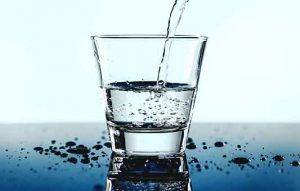
Bicchiere di acqua
Dehydration impairs your cognitive performance, creating impaired decision making, attention and executive function problems, which include things like map recognition, grammatical reasoning, mental math, and motor coordination.
The effects weren’t huge at 2 percent, they increased with increasing dehydration, Millard-Stafford (a professor in the school of biological sciences and director of the physiology lab at the Georgia Institute of Technology) said.
But what happens in the brain with the same amount of loss, which is pretty common with people who are active or work outside in the heat?
Just like a muscle cell needs water, so do the cells in our brain.
To conduct systematic literature review and meta-analysis to determine the effect size of dehydration on cognitive performance and influence of experimental design factors thirty-three studies were identified, providing 280 effect size estimates from 413 subjects with dehydration ranging from 1-6% BML.
Outcome variables (accuracy, reaction time), cognitive domains, and methods to induce dehydration varied.
Effect size were calculated using standardized mean differences and multivariate meta-analysis.
Participants lost fluids amounting to 1 to 6 percent of their body mass either through exercise alone, exercise coupled with heat, heat alone or fluid restriction.
It can be hard to diagnose dehydration, so it’s important for individual athletes to keep track of how much fluid they’re taking in and how much they’ve lost, Roth (a professor of emergency medicine at the University of Pittsburgh School of Medicine, medical director of the Dick’s Sporting Goods-Pittsburgh Marathon and one of the team physicians for the Pittsburgh Steelers) said.
Still, certain symptoms should be reminders that it’s time to take in more fluid: fatigue, muscle weakness, decreased urine output, confusion.
The more dehydrated you are the less sharp you are and your decision-making abilities get lost sooner than later.
It’s important to know the right water balance – Millard-Stafford said – you need to know that you can have not just too little but also too much.
The color of your urine is a simple way of monitoring your fluid levels: if it’s very, very clear, then you are probably drinking far more than necessary, but if it’s dark gold that may mean the kidneys need a little more water since they’re concentrating your urine to keep the balance where it needs to be.
See also
Human body stops us from over-drinking water
Link…
For more information
Medicine & Science in Sports & Exercise
Dehydration Impairs Cognitive Performance: A Meta-analysis
MDN
This post is also available in:
 Italian
Italian


